Reading
Reading
Reading is fundamental to education. Our teaching of reading focuses on developing competence and confidence in word reading and comprehension through a variety of reading activities. We promote a love of reading and encourage reading of a wide range of texts.
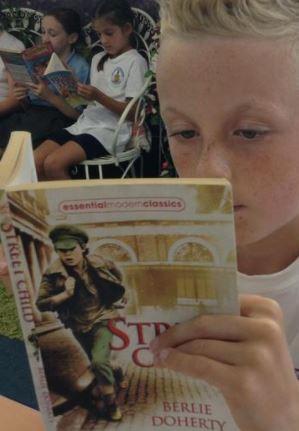
Aims
We aim to enable our children:
- To be skilled in decoding words by the end of Key Stage One
- To read independently, fluently and expressively, with understanding and enjoyment
- To read a wide range of texts, including text on screen both for pleasure and for information
- To engage with and respond to what they read
- To develop reading stamina
Approaches
We encourage a love of books and of reading for enjoyment by providing a rich reading environment in our classrooms and in our school library. In addition to the books the children read for themselves, they also encounter wider experiences of books and reading each day, experiences which will contribute to their language development, comprehension skills and love of literature (e.g. books explored through Shared Reading, story-time, library books, familiar books and class book corners).
Throughout the school, teachers read aloud to children on a regular basis. We read a wide range of good quality fiction, non-fiction and poetry. We plan the texts that we use to ensure that there is progression across each year group and across the school. Our reading texts are outlined in our Whole School English Overview.
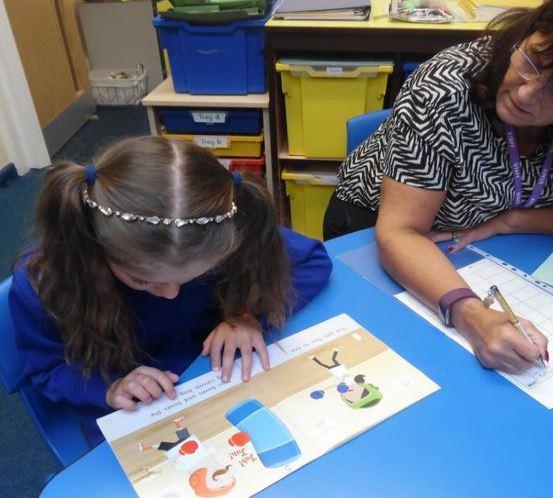 Children in Reception work within the Early Years Foundation Stage Framework towards their Early Learning Goals. The children experience activities to develop their knowledge, understanding and skills through seven areas of learning, including Communication and Language and Literacy. The Communication and Language element encourages children to listen, respond and engage in activities with others and to express themselves effectively. Literacy encompasses reading and writing using their phonic knowledge.
Children in Reception work within the Early Years Foundation Stage Framework towards their Early Learning Goals. The children experience activities to develop their knowledge, understanding and skills through seven areas of learning, including Communication and Language and Literacy. The Communication and Language element encourages children to listen, respond and engage in activities with others and to express themselves effectively. Literacy encompasses reading and writing using their phonic knowledge.
Our home reading scheme for the Reception and Key Stage 1 children is ‘Bug Club Phonics’. Part of the Bug Club family, Bug Club Phonics is one of the DfE’s approved phonics teaching programmes and aims to help all children learn to read by the age of six in a fun and accessible way. Following its own proven progression, the whole school programme matches the National Curriculum and Early Learning Goals. More information can be found on our Phonics page.
Phonics sets In the early stages of learning to read, children use phonics to decode words. Often, children may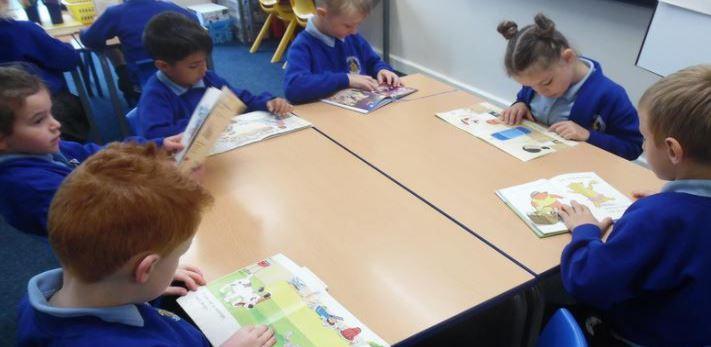 struggle with particular sounds (phonemes) and need to practise reading words containing this phoneme. We also use phonics sets to organise our books so that teachers can target particular sounds to help children to progress. Occasionally, your child may bring home a book from a different book band in order to practise a particular phoneme.
struggle with particular sounds (phonemes) and need to practise reading words containing this phoneme. We also use phonics sets to organise our books so that teachers can target particular sounds to help children to progress. Occasionally, your child may bring home a book from a different book band in order to practise a particular phoneme.
Children experience a range of text genres aimed at broadening their knowledge of text types and engaging them in literature. We use a variety of reading approaches such as whole class reading, guided reading and individual reading.
Colour banding is one way that books are organised - children move through the book bands which are progressive in the number of words, size of font and the complexity of language. In KS2, the Bug Club books continue to the level of fully proficient readers in Year 6. The modern and engaging titles, bright colours and photographs mean that children are desperate to read at home! There is a range of fiction, non-fiction, comics and plays to encourage a love of reading.
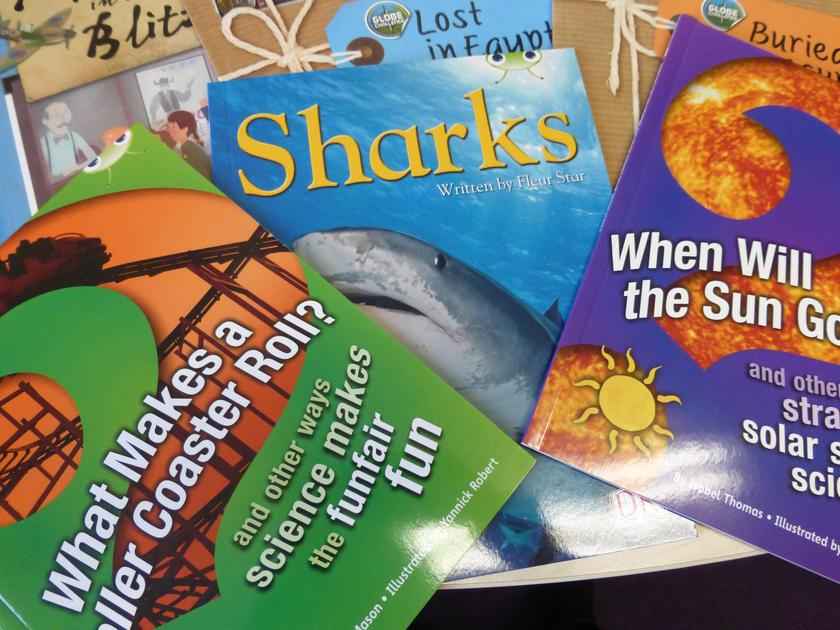
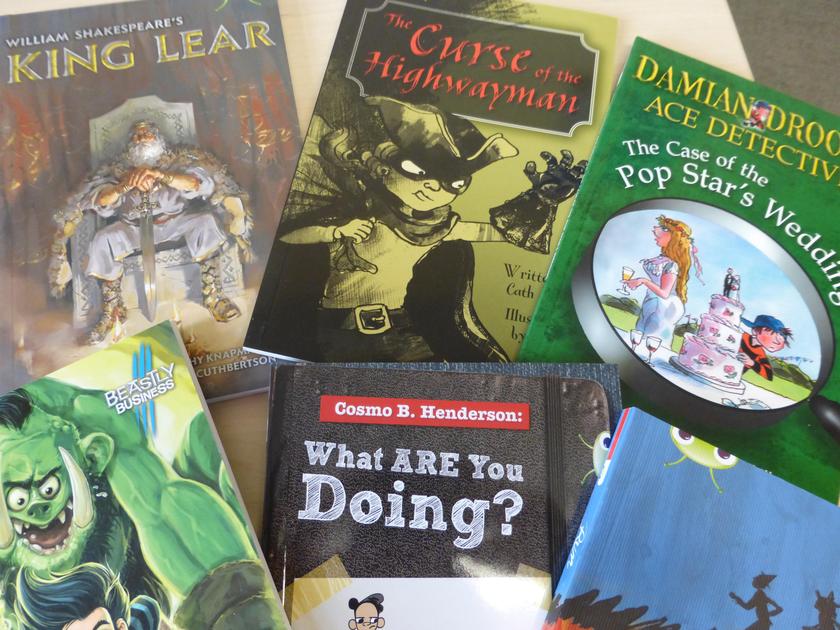
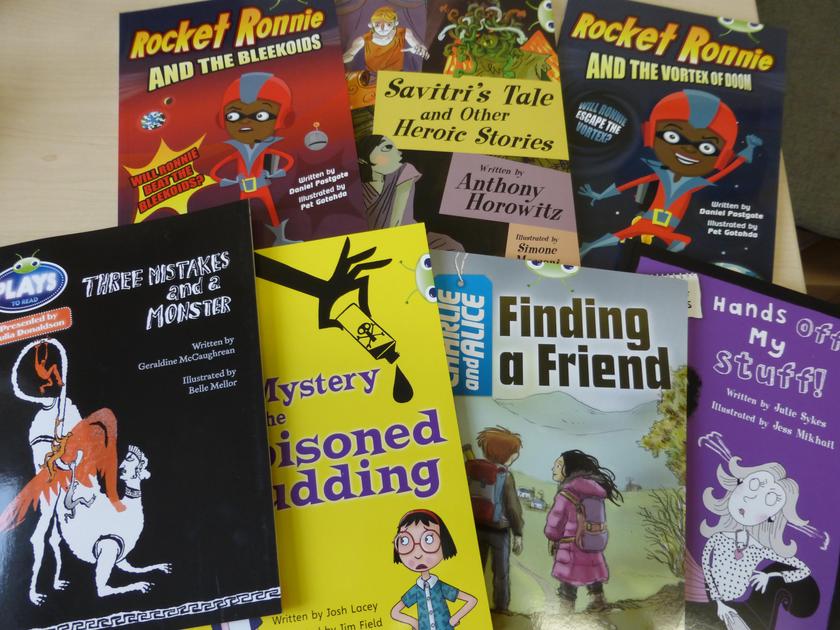
The table shows the order of the book banding system. Not all children will move through the book bands at the same rate but the table shows our expectations for each year group.
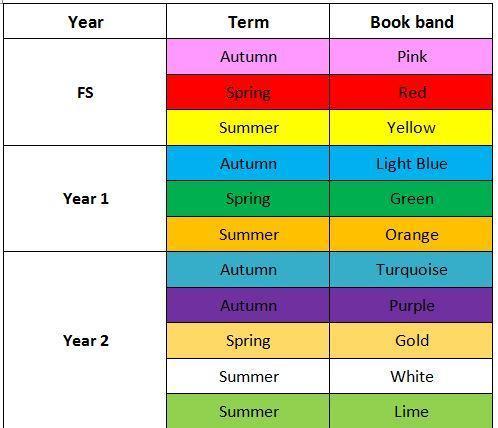
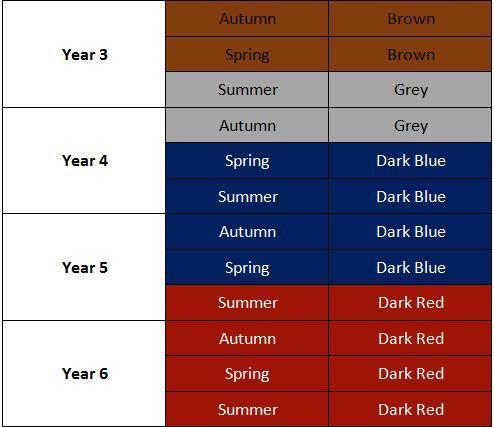
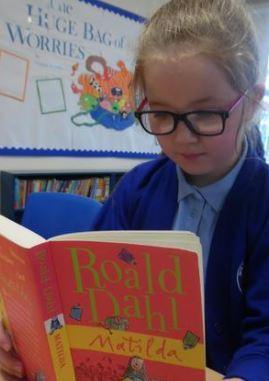
Recommended Reading Books
We have selected these recommended reading lists from Peters Education to ensure that our children have access to a wide range of books. These books are all available in school and form our 'core' texts in our class libraries. These lists are chosen because they:
- link with our curriculum for each year group
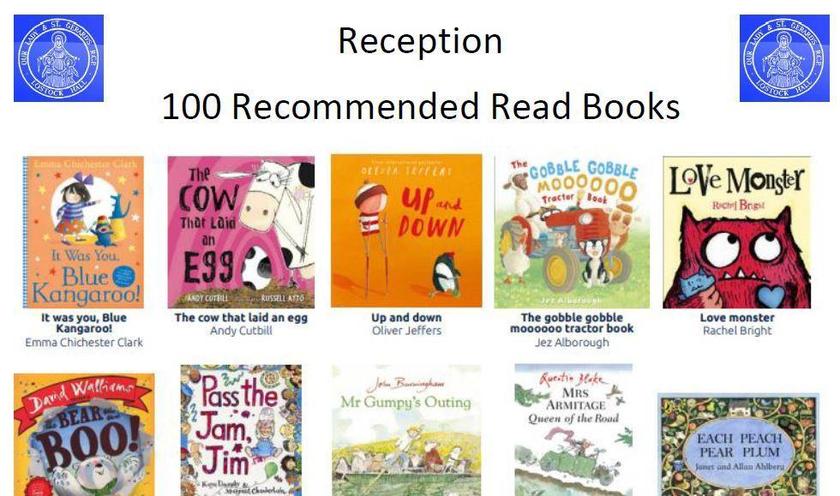
- represent different cultures
- introduce children to new authors and expand their knowledge of familiar authors
- ensure progression
- match topics of interests for our children
- tackle current themes
Click on the links below to access the lists.
